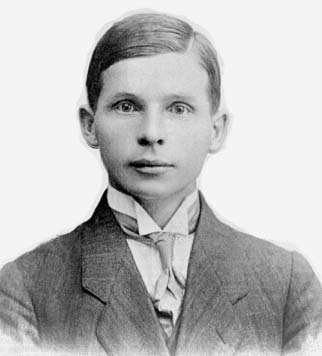Quiet
And See
I am losing my interest in human beings; in the significance of their lives and their actions. Some one has said it is better to study one man than ten books. I want neither books nor men; they make me suffer. Can one of them talk to me like the night – the Summer night? Like the stars or the caressing wind?
The night came slowly, softly, as I lay out there under the maple tree. It came creeping, creeping stealthily out of the valley, thinking I did not notice. And the outlines of trees and foliage nearby blended in one black mass and the night came stealing out from them, too, and from the east and west, until the only light was in the sky, filtering through the maple leaves and a star looking down through every cranny.
The night is solemn and it means mystery.
Human shapes flitted by like intangible things. Some stole up like little mice to peep at me. I did not mind. My whole being was abandoned to the soothing and penetrating charm of the night.
The katydids began their slumber song: they are at it yet. How wise they are. They do not chatter like people. They tell me only: “sleep, sleep, sleep.” The wind rippled the maple leaves like little warm love thrills.
Why do fools cumber the Earth! It was a man’s voice that broke the necromancer’s spell. A man came to-day with his “Bible Class.” He is detestable with his red cheeks and bold eyes and coarse manner and speech. What does he know of Christ? Shall I ask a young fool who was born yesterday and will die tomorrow to tell me things of Christ? I would rather ask the stars: they have seen him.

Something Amazing
Love For All, Hatred For None.
Change the world by being yourself.

The fact that Henry Armstrong was buried did not seem to him to prove that he was dead: he had always been a hard man to convince. That he really was buried, the testimony of his senses compelled him to admit. His posture — flat upon his back, with his hands crossed upon his stomach and tied with something that he easily broke without profitably altering the situation — the strict confinement of his entire person, the black darkness and profound silence, made a body of evidence impossible to controvert and he accepted it without cavil.
But dead — no; he was only very, very ill. He had, withal, the invalid’s apathy and did not greatly concern himself about the uncommon fate that had been allotted to him. No philosopher was he — just a plain, commonplace person gifted, for the time being, with a pathological indifference: the organ that he feared consequences with was torpid. So, with no particular apprehension for his immediate future, he fell asleep and all was peace with Henry Armstrong.
But something was going on overhead. It was a dark summer night, shot through with infrequent shimmers of lightning silently firing a cloud lying low in the west and portending a storm. These brief, stammering illuminations brought out with ghastly distinctness the monuments and headstones of the cemetery and seemed to set them dancing. It was not a night in which any credible witness was likely to be straying about a cemetery, so the three men who were there, digging into the grave of Henry Armstrong, felt reasonably secure.
Two of them were young students from a medical college a few miles away; the third was a gigantic negro known as Jess. For many years Jess had been employed about the cemetery as a man-of-all-work and it was his favourite pleasantry that he knew ‘every soul in the place.’ From the nature of what he was now doing it was inferable that the place was not so populous as its register may have shown it to be.
Outside the wall, at the part of the grounds farthest from the public road, were a horse and a light wagon, waiting.
The work of excavation was not difficult: the earth with which the grave had been loosely filled a few hours before offered little resistance and was soon thrown out. Removal of the casket from its box was less easy, but it was taken out, for it was a perquisite of Jess, who carefully unscrewed the cover and laid it aside, exposing the body in black trousers and white shirt. At that instant the air sprang to flame, a cracking shock of thunder shook the stunned world and Henry Armstrong tranquilly sat up. With inarticulate cries the men fled in terror, each in a different direction. For nothing on earth could two of them have been persuaded to return. But Jess was of another breed.
ONE fine evening, a no less fine government clerk called Ivan Dmitritch Tchervyakov was sitting in the second row of the stalls, gazing through an opera glass at the Cloches de Corneville. He gazed and felt at the acme of bliss. But suddenly. . . . In stories one so often meets with this “But suddenly.” The authors are right: life is so full of surprises! But suddenly his face puckered up, his eyes disappeared, his breathing was arrested . . . he took the opera glass from his eyes, bent over and . . . “Aptchee!!” he sneezed as you perceive. It is not reprehensible for anyone to sneeze anywhere. Peasants sneeze and so do police superintendents, and sometimes even privy councillors. All men sneeze. Tchervyakov was not in the least confused, he wiped his face with his handkerchief, and like a polite man, looked round to see whether he had disturbed any one by his sneezing. But then he was overcome with confusion. He saw that an old gentleman sitting in front of him in the first row of the stalls was carefully wiping his bald head and his neck with his glove and muttering something to himself. In the old gentleman, Tchervyakov recognised Brizzhalov, a civilian general serving in the Department of Transport.
“I have spattered him,” thought Tchervyakov, “he is not the head of my department, but still it is awkward. I must apologise.”
Tchervyakov gave a cough, bent his whole person forward, and whispered in the general’s ear.
“Pardon, your Excellency, I spattered you accidentally. . . .”
“Never mind, never mind.”
“For goodness sake excuse me, I . . . I did not mean to.”
“Oh, please, sit down! let me listen!”
Tchervyakov was embarrassed, he smiled stupidly and fell to gazing at the stage. He gazed at it but was no longer feeling bliss. He began to be troubled by uneasiness. In the interval, he went up to Brizzhalov, walked beside him, and overcoming his shyness, muttered:
“I spattered you, your Excellency, forgive me . . . you see . . . I didn’t do it to . . . .”
“Oh, that’s enough . . . I’d forgotten it, and you keep on about it!” said the general, moving his lower lip impatiently.
“He has forgotten, but there is a fiendish light in his eye,” thought Tchervyakov, looking suspiciously at the general. “And he doesn’t want to talk. I ought to explain to him . . . that I really didn’t intend . . . that it is the law of nature or else he will think I meant to spit on him. He doesn’t think so now, but he will think so later!”
On getting home, Tchervyakov told his wife of his breach of good manners. It struck him that his wife took too frivolous a view of the incident; she was a little frightened, but when she learned that Brizzhalov was in a different department, she was reassured.
“Still, you had better go and apologise,” she said, “or he will think you don’t know how to behave in public.”
“That’s just it! I did apologise, but he took it somehow queerly . . . he didn’t say a word of sense. There wasn’t time to talk properly.”
Next day Tchervyakov put on a new uniform, had his hair cut and went to Brizzhalov’s to explain; going into the general’s reception room he saw there a number of petitioners and among them the general himself, who was beginning to interview them. After questioning several petitioners the general raised his eyes and looked at Tchervyakov.
“Yesterday at the Arcadia, if you recollect, your Excellency,” the latter began, “I sneezed and . . . accidentally spattered . . . Exc. . . .”
“What nonsense. . . . It’s beyond anything! What can I do for you,” said the general addressing the next petitioner.
“He won’t speak,” thought Tchervyakov, turning pale; “that means that he is angry. . . . No, it can’t be left like this. . . . I will explain to him.”
When the general had finished his conversation with the last of the petitioners and was turning towards his inner apartments, Tchervyakov took a step towards him and muttered:
“Your Excellency! If I venture to trouble your Excellency, it is simply from a feeling I may say of regret! . . . It was not intentional if you will graciously believe me.”
The general made a lachrymose face, and waved his hand.
“Why, you are simply making fun of me, sir,” he said as he closed the door behind him.
“Where’s the making fun in it?” thought Tchervyakov, “there is nothing of the sort! He is a general, but he can’t understand. If that is how it is I am not going to apologise to that fanfaron any more! The devil take him. I’ll write a letter to him, but I won’t go. By Jove, I won’t.”
So thought Tchervyakov as he walked home; he did not write a letter to the general, he pondered and pondered and could not make up that letter. He had to go next day to explain in person.
“I ventured to disturb your Excellency yesterday,” he muttered, when the general lifted enquiring eyes upon him, “not to make fun as you were pleased to say. I was apologising for having spattered you in sneezing. . . . And I did not dream of making fun of you. Should I dare to make fun of you, if we should take to making fun, then there would be no respect for persons, there would be. . . .”
“Be off!” yelled the general, turning suddenly purple, and shaking all over.
“What?” asked Tchervyakov, in a whisper turning numb with horror.
“Be off!” repeated the general, stamping.
Something seemed to give way in Tchervyakov’s stomach. Seeing nothing and hearing nothing he reeled to the door, went out into the street, and went staggering along. . . . Reaching home mechanically, without taking off his uniform, he lay down on the sofa and died.





